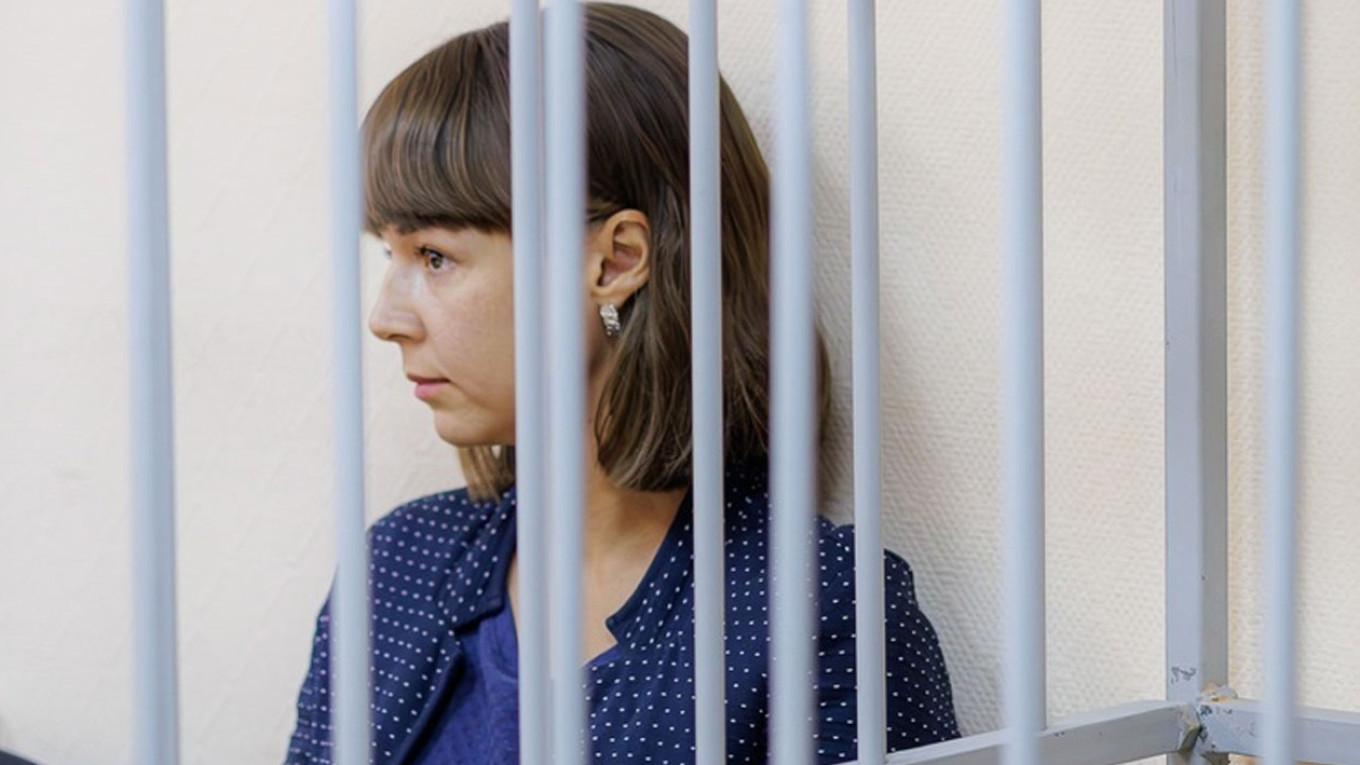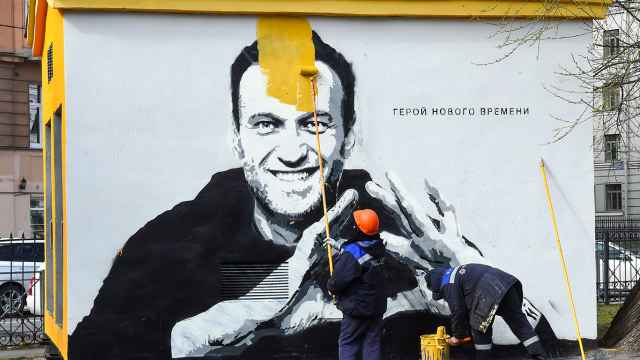An ally of jailed opposition activist Alexei Navalny and former municipal deputy in Siberia's Tomsk region has been moved from house arrest and sent to a detention center, her associate wrote on social media Monday.
Ksenia Fadeyeva is a former municipal deputy in the city of Tomsk and was added to Russia's "terrorist" list in January 2022.
She also headed Navalny's political office in the city, where the jailed Kremlin critic was poisoned with the nerve agent Novichok when he visited in August 2020 to support local activists ahead of elections.
Andrei Fateyev, another Navalny associate who was elected to the Tomsk City Duma at the same time as Fadeyeva, wrote on the messaging app Telegram that Fadeyeva had been sentenced to house arrest three weeks ago for violating unspecified court-ordered restrictions on her actions.
According to him, the prosecution felt the restrictions were too lenient and demanded she be sent to a detention center, which was approved on Monday by a Tomsk region court.
“The state punishes her for legal and open political activity, for the fight against corruption, for demanding a change of power in the country,” Fateyev said.
“The state cannot and does not want to punish real extremists,” he added.
Following her arrest in 2022, Fadeyeva was forbidden from using the internet, communicating with others without permission from investigators, and attending public events.
Her trial began in August and was later closed to the media and observers.
She faces up to 12 years in prison if convicted on “extremism” charges.
Navalny’s political network was designated “extremist” in 2021, putting employees, volunteers and supporters at risk of criminal prosecution.
AFP contributed to this reporting.
A Message from The Moscow Times:
Dear readers,
We are facing unprecedented challenges. Russia's Prosecutor General's Office has designated The Moscow Times as an "undesirable" organization, criminalizing our work and putting our staff at risk of prosecution. This follows our earlier unjust labeling as a "foreign agent."
These actions are direct attempts to silence independent journalism in Russia. The authorities claim our work "discredits the decisions of the Russian leadership." We see things differently: we strive to provide accurate, unbiased reporting on Russia.
We, the journalists of The Moscow Times, refuse to be silenced. But to continue our work, we need your help.
Your support, no matter how small, makes a world of difference. If you can, please support us monthly starting from just $2. It's quick to set up, and every contribution makes a significant impact.
By supporting The Moscow Times, you're defending open, independent journalism in the face of repression. Thank you for standing with us.
Remind me later.






